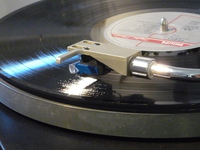Items
Site
The Medicine Chest
keywords is exactly
Sonata
-

Ma
The Japanese have a word, ‘ma’, for this interval which gives shape to the whole – this ‘gap’, ‘opening’, ‘space between’ or ‘time between’. Ma is not something that is created by compositional elements, rather it can be understood as the thing that takes place in the imagination of the human who experiences these elements. A room, for example, is called 'ma', as it refers to the space between the walls. Or a rest in music, which indicates a pause between the notes or sounds (Pilgrim 1986: 255). -

Where their lives took on true weight
In Alice Munro's short story 'Post and Beam', the two protagonists return home from a short vacation: "Up Capilano Road, into their own part of the city and their own corner of the world, where their lives took on true weight and their actions took on consequences. There were the uncompromising wooden walls of their house, showing through the trees" (Munro 2001: 212). -

Mozart's Antimony
Medical bedside cabinet, gramophone player with a hypodermic needle substitution, Mozart’s Sonata in C, KV 279 and Sonata in D, KV 576. The needle is slowly scratching irreparable grooves into the record whilst the record in return, is making the needle blunt.. "On 20 October 1791, Mozart told his wife Constanza that he was being poisoned. On 20 November he developed a fever; his hands, feet and stomach became swollen, and he had attacks of vomiting. He died on the 5th of December. Although Antonio Salieri confessed to Mozart’s murder several years later, it is highly unlikely as Salieri suffered from senile dementia. In 1991, Ian James of London’s Royal Free Hospital attributed Mozart’s death to antimony, a poison that Mozart may have been given by his doctor - not to kill him but to cure him. Antimony was prescribed for what was then diagnosed as melancholia. In small doses it leads to headaches, fainting and depression. In large doses it can be fatal within days (Emsley 1999: 225). In the autumn of 1791, Mozart, suffering from severe depression, exacerbated by debt, the ill reception of his new work La Clemenza di Tito, and a commission to write a requiem which he believed was for his own funeral, dosed himself with a variety of medicines – one of these being antimony – and what was meant to cure, killed" (Liebenberg 2011: 85 - 91).


